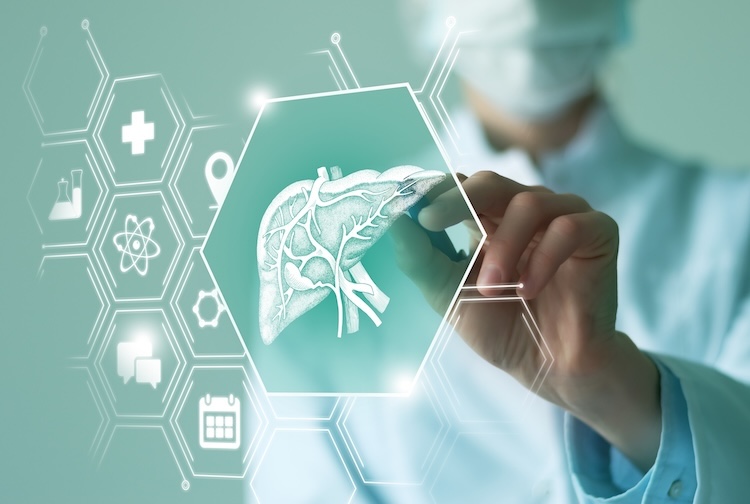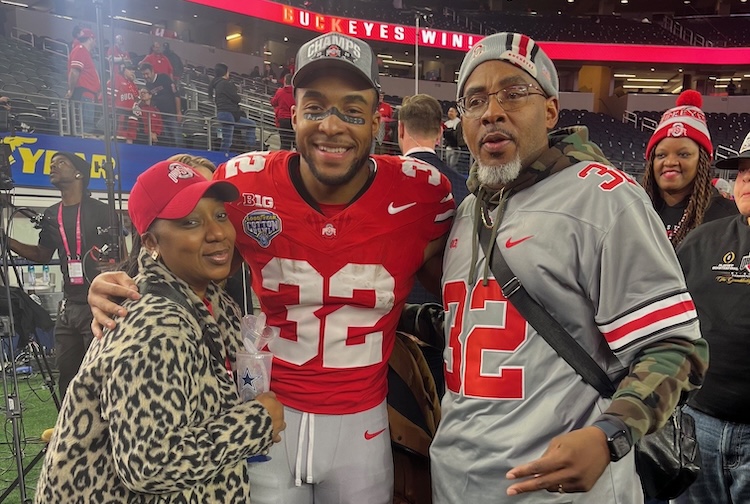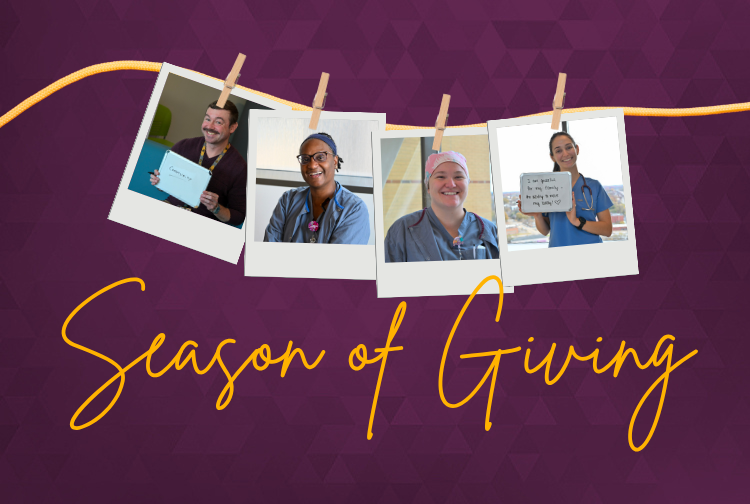COVID-19 vaccines and transplant patients: Yes, get your fourth dose
Our transplant infectious diseases expert explains why.
February 15, 2022 Illustration: Getty Images
Illustration: Getty Images
Updated February 15, 2022, to reflect recommendation on a fourth vaccine dose. Please note that this content is accurate as of the update date.
It's now recommended that transplant patients get a fourth dose of the COVID-19 vaccine. But will even four doses be enough? When should you get your fourth dose? And what about that new protective therapy, Evusheld? Should you get that, too?
In this article, Dr. Megan Morales, director of Transplant Infectious Diseases at VCU Hume-Lee Transplant Center, answers these questions and provides the latest information regarding the COVID-19 vaccines for transplant patients.

Why should transplant patients get a fourth COVID-19 vaccine dose?
A fourth vaccine dose will help give transplant patients and others who are moderately to severely immunocompromised the best level of protection. Here's why:
- If you are infected with COVID-19, you are more likely to have severe disease and require hospitalization or care in the ICU. Vaccination will reduce this probability.
- The medicines you take to prevent organ rejection weaken your body's ability to fight infections. The medicines also weaken your immune system's ability to respond to vaccines. This may make it difficult for you to attain a protective immune response after one, two or even three vaccine doses. Each additional dose will help boost your immune system's response to infection.
- For those patients fortunate enough to reach a protective immune system response, the response does naturally decrease over time.
These reasons and subsequent recommendations were issued by the CDC and are supported by additional agencies as well as our transplant infectious diseases team.
What do patients need to know about the fourth dose?
Transplant patients can receive their fourth vaccine dose three months after their third dose.
VCU Health transplant patients can schedule a vaccination appointment at a VCU Health location by calling (804) 393-0591. Please note that these vaccination clinics are located on our Richmond medical . You can also contact your transplant coordinator directly to see if you may receive your vaccine at an upcoming appointment.
We recommend that patients also consider other ways to obtain a fourth vaccine dose. This includes getting your vaccination at a community COVID-19 vaccine center or another verified where vaccines are offered. Should you receive a vaccine at a non-VCU Health location, please be sure to inform your transplant coordinator.
Also, transplant patients who received monoclonal antibodies no longer need to wait 90 days for a vaccine dose. These patients may receive a vaccine after treatment, as soon as they are feeling well after COVID infection.
What if I am behind or I didn't get vaccinated?
Our transplant team strongly recommends that all transplant patients and candidates receive the COVID-19 vaccine. If you are vaccine-eligible and have not received a first dose, I urge you to do so right away. If you haven't received a second, third or fourth dose, here's a guide to help you understand the timing:
Pfizer-BioNTech - Second dose at least 21 days after first dose; third dose at least 28 days after second dose; fourth dose at least three months after third dose.
Moderna - Second dose at least 28 days after first dose; third dose at least 28 days after second dose; fourth dose at least three months after third dose.
Johnson & Johnson - Second dose with mRNA vaccine (Pfizer-BioNTech or Moderna) at least 28 days after first dose; third shot (booster) with mRNA at least two months later.
If you have been waiting for full vaccine approval instead of emergency authorization, please note that both the Pfizer-BioNTech and Moderna vaccines are fully approved by the FDA. The vaccines are safe.
What if you received vaccines from different manufacturers?
It's OK. Just follow the guide from your most recent vaccine dose manufacturer. Your coordinator or transplant pharmacist can help you determine the next step.
In general, for the mRNA vaccines (Pfizer-BioNTech and Moderna), try to stick with the same for your first three shots. If you can't, it is OK to get whatever is available to you. The booster doses can follow a “mix and match” approach of using either available vaccine, even if it differs from your first three doses.
How many doses will it take?
Research is still taking place to answer this question. It probably depends on an individual's particular risk and immune response, but for transplant patients who don't respond to their primary vaccine series, an increasing number will be able to make their own protective antibody response after a third and then fourth shot. In the future, the need for booster shots may be guided by the emergence of other variants and a more individualized assessment of your response to the COVID vaccine.
I've heard about Evusheld for transplant patients. How can it help?
Evusheld is a protective monoclonal antibody treatment intended to prevent COVID infection. Late last year, Evusheld received FDA emergency use authorization. Think of it as a way to get the protective antibodies directly if you can't make them yourself. Supplies are improving but are still limited nationally. VCU Health does have access to Evusheld through the Virginia Department of Health. Although supplies are limited, patients who are the most vulnerable or least likely to respond to vaccination will be considered for this treatment. It is important to remember that Evusheld is not a replacement for vaccination in vaccine-eligible individuals.
What should family and friends know?
Any eligible household member should be vaccinated, including a booster shot. Having vaccinated people around you further offers further protection. This is especially important following the spread of the omicron variant. When in public, family and friends should wear the most protective masks available to them, including N-95 or KN95 masks, rather than cloth masks, if possible. Handwashing is also very important.
At what age can transplant patients get the vaccine?
The COVID-19 vaccine is available for all transplant patients age 5 and up for Pfizer and age 18 and up for Moderna. You can follow the VCU Health COVID-19 website, the Virginia Department of Health website or contact your transplant coordinator for additional information.
What if I've already had COVID-19?
You should get vaccinated even if you've had COVID-19. You may have some degree of protective antibodies for a period of time, but the vaccine will give you additional protection against reinfection. You should wait until you have fully recovered from COVID-19. We encourage you to discuss the timing of your vaccination with your transplant team to make the best decision for you.
Should patients waiting for transplant be vaccinated?
Yes, you should get your vaccination before your transplant if possible. Vaccination is more effective when given before transplant. Also, many transplant candidates have other health conditions, such as diabetes, high blood pressure or advanced kidney disease, which may put them at increased risk of severe COVID-19. Ideally, you would be vaccinated at least two weeks before transplant to give your immune system time to respond effectively. However, we will not delay your transplant because of a more recent vaccine.
Your transplant may be delayed or canceled if you develop COVID, just as the case would be with any other active infection. This is another important reason to be vaccinated. The same applies to any living donor.
When should I get the vaccine post-transplant?
New transplant recipients should delay receiving a COVID-19 vaccine:
- Kidney transplant patients should wait three months after transplant
- All other organ recipients should wait one month after their transplant.
Other patients may also need to adhere to the three-month window. Those patients will be informed directly by our care team.
This delay in vaccination is necessary to give your immune system enough time after transplant to recover to a level where the vaccine is more likely to be effective.
After I get the vaccine, am I safe right away? Do I have to wear a face mask or practice social distancing?
Now is not the time to let up on the safety precautions you have been observing. Continue to observe safe practices. This includes wearing your mask, frequent handwashing, physical distancing and avoiding unnecessary outings.
We're here for you
Please know that all of us at Hume-Lee are here to guide you through the vaccination process. Our team is closely monitoring vaccine developments and recommendations for transplant patients.
We are on this journey together. Should you have any questions, you may call us at (804) 828-4104. For additional transplant-specific information, visit the American Society of Transplantation COVID-19 resource page.
Sign Up for Transplant E-Newsletter




